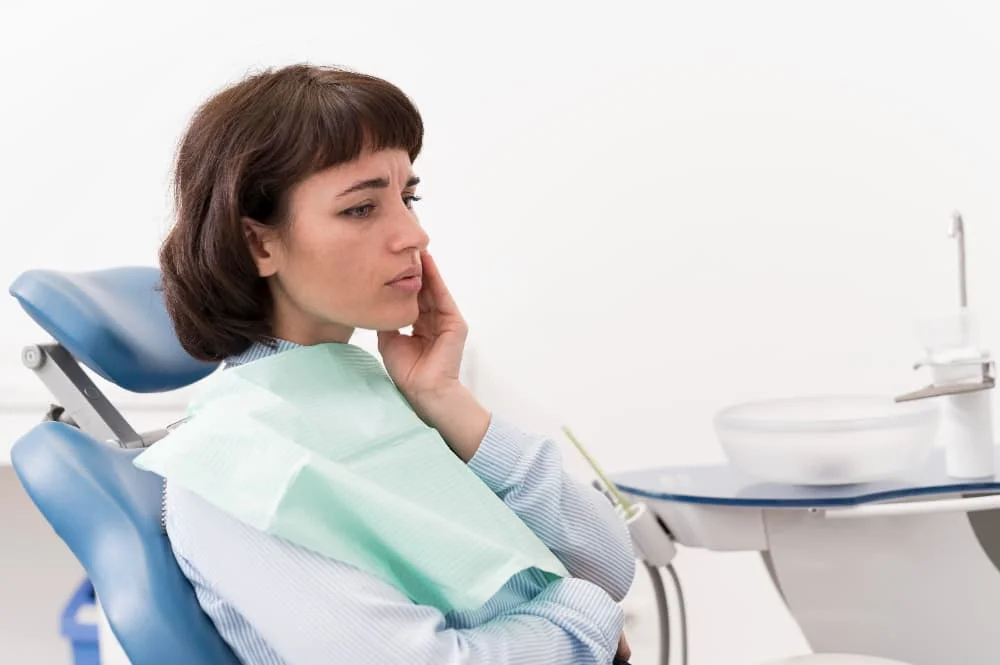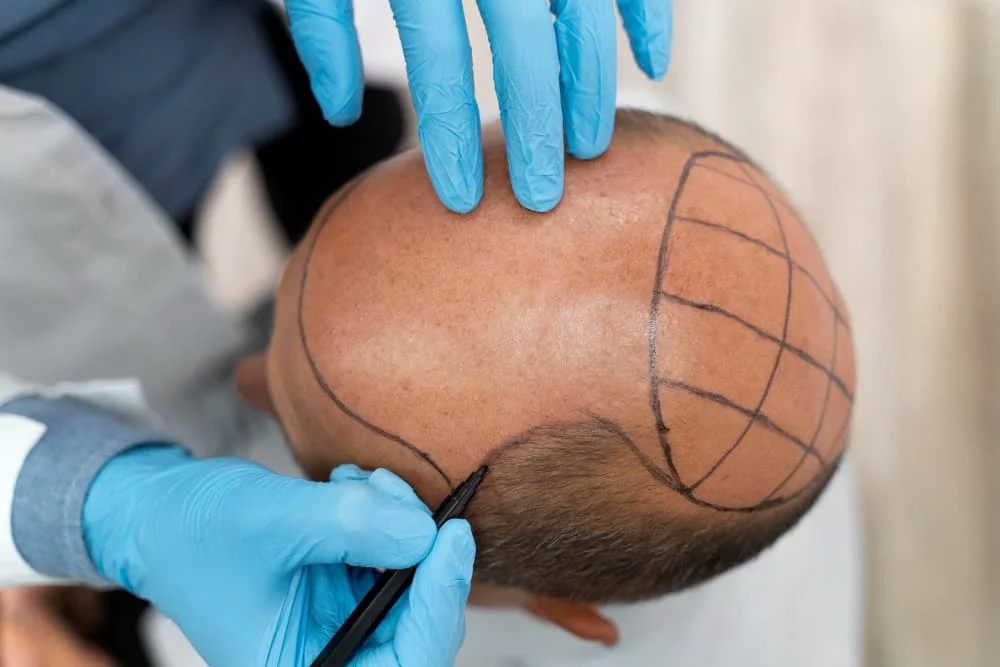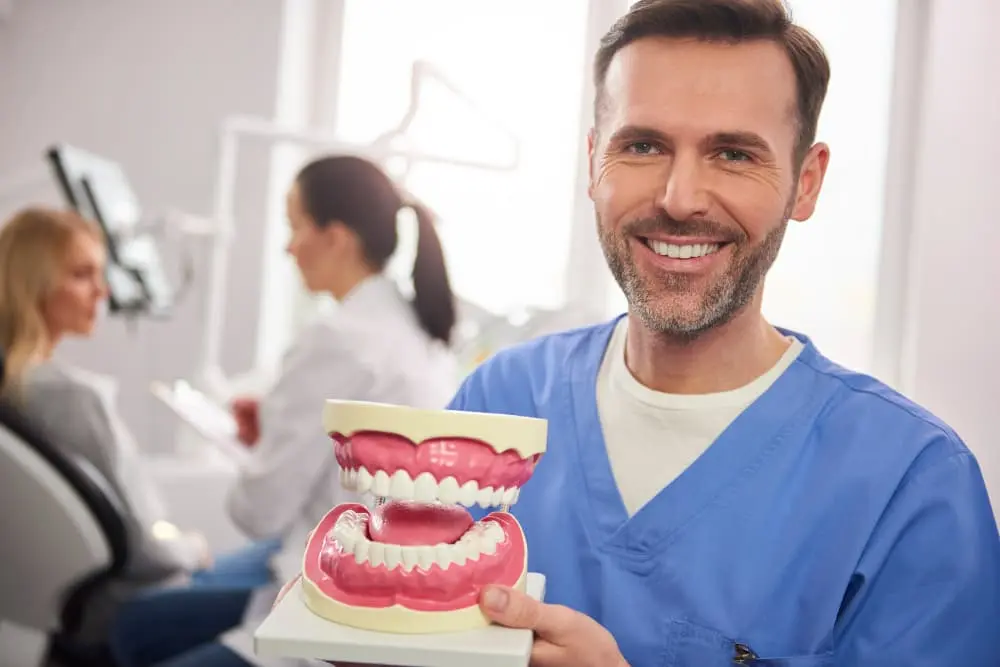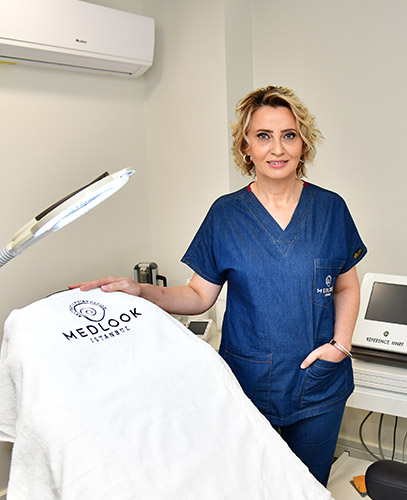
Sitting in the dentist’s chair can be a stressful and anxiety-inducing experience for many people. Negative childhood experiences, concerns about pain, or the feeling of losing control can trigger dental anxiety. Ignoring dental health due to fear can lead to significant dental issues over time. However, it’s important to remember that dental anxiety is a common condition and that overcoming this fear is entirely possible.
In this article, we’ll explore the causes and symptoms of dental anxiety in detail. Additionally, we will share effective methods and strategies to help you overcome this fear. We will also explain how our clinic offers relaxing dental services to help you protect your dental health without fear.
What Is Dental Anxiety?
Dental anxiety is an intense feeling of fear, worry, or stress related to the thought of a dental examination or treatment. This fear can range from mild discomfort to a severe panic attack. For some people, this fear is so overwhelming that they completely avoid visiting the dentist, which, over time, can lead to serious oral health problems.
This fear, also known as dentophobia, is characterized by an irrational and excessive fear of dentists or dental procedures. Individuals with dentophobia may feel extreme panic just thinking about a dental examination, or they may show physical reactions (such as sweating, increased heart rate, nausea).
Causes of Dental Anxiety

Several factors can contribute to the development of dental anxiety. The most common causes include:
- Past Negative Experiences: Bad experiences at the dentist, especially during childhood, can lead to anxiety about dental treatments later in life.
- Fear of Pain: The thought that dental treatments may be painful causes fear and anxiety for many people. However, thanks to modern anesthesia techniques, the majority of dental treatments today can be performed painlessly.
- Loss of Control: The feeling of losing control while sitting in the dentist’s chair is a significant source of anxiety for many people. This can stem from a lack of understanding about the treatment process, making a person feel vulnerable.
- Embarrassment or Shame: Feeling embarrassed about poor oral care or fearing judgment from the dentist may lead some people to avoid dental checkups.
- Influence from Others: Hearing about negative experiences or comments from people around you can contribute to the development of this fear. Children, in particular, may learn this fear by observing their parents’ anxiety about the dentist.
Understanding the causes of dental anxiety is the first and most crucial step in dealing with it. Recognizing these reasons can help you take the necessary steps without neglecting your dental health.
Symptoms of Dentophobia
Dental anxiety isn’t just a mental state of worry; it also presents itself through physical and emotional responses. These symptoms can occur before, during, or after a dental appointment, and they vary in intensity among individuals.
Physical Symptoms:
- Sweating
- Increased heart rate (palpitations)
- Difficulty breathing or a feeling of tightness
- Nausea
- Dizziness or light-headedness
- Shaking or tension
- Feeling faint or actually fainting
Emotional Symptoms:
- Intense fear and anxiety
- Panic attacks
- Fear of losing control
- Avoidance behavior (frequently postponing or canceling appointments)
- Sleep issues, especially before an appointment
- Restlessness and irritability
These symptoms of dentophobia can negatively impact a person’s daily life and quality of life. Coping with this fear is crucial for maintaining both your mental health and oral health. Therefore, recognizing the symptoms and taking appropriate action is fundamental to building a healthy oral care routine.
Strategies to Overcome Dental Anxiety

There are several methods and strategies available to help overcome dentophobia and maintain dental health. These methods may vary depending on the severity of the fear and individual preferences.
1. Relaxation Techniques
To ease dental anxiety, you can use relaxation techniques such as deep breathing, meditation, and muscle relaxation. These methods can help reduce anxiety and make you feel more comfortable in the dentist’s chair.
- Deep Breathing: Take a deep breath through your nose, hold it for a few seconds, then slowly release it through your mouth. Repeating this process can help your body relax.
- Meditation: Sit comfortably in a quiet place and focus on your breath or a calming image to soothe your mind.
- Progressive Muscle Relaxation: Gradually tense and relax different muscle groups in your body to release tension and provide relaxation.
2. Cognitive Behavioral Therapy (CBT)
CBT is an effective therapy method that aims to change the negative thoughts and behaviors underlying dental anxiety. Through CBT, you can face your fears, replace negative thoughts with positive approaches, and develop healthy coping mechanisms.
3. Open Communication with Your Dentist
One of the most important ways to overcome fear is to communicate openly with your dentist. By sharing your concerns with your doctor, you can better understand the treatment process and feel safer at each stage. Letting your dentist know if you feel discomfort will help improve your comfort during treatment.
4. Sedation Options
If your dental fear is severe and other methods are insufficient, sedation may be an alternative. Sedation is a method used to reduce anxiety and help you relax during dental procedures. There are various options such as conscious sedation or general anesthesia, and your dentist will determine the most suitable type of sedation to make the treatment more comfortable.
Overcoming dental fear is possible. Understanding your fears and seeking support in this regard is one of the most important steps to protecting your dental health.
Tips for Coping with Dental Anxiety
There are effective steps you can take to overcome your fear of the dentist and protect your dental health. Here are some methods you can use before, during, and after your appointment:
Before the Appointment:
- Choose the Right Dentist: Finding a dentist who understands you, makes you feel safe, and cares about your concerns is very important. Istanbul Hair Institute offers a specialized approach for patients with dental anxiety.
- Share Your Fears: Speak openly with your dentist about your fears. Getting information about the treatment process can help reduce your anxiety.
- Use Relaxation Techniques: Use relaxation techniques such as deep breathing or meditation before and during the appointment. This can significantly reduce your anxiety.
During the Appointment:
- Distract Yourself: Listening to music, reading a book, or chatting with your dentist can distract you from the procedure and alleviate your anxiety.
- Stay in Control: Don’t hesitate to let your dentist know if you feel uncomfortable. Taking breaks during the treatment gives you a sense of control.
- Think Positively: Avoid negative thoughts and focus on how happy you will be with a healthy mouth after the treatment.
After the Appointment:
- Reward Yourself: Reward yourself with something small after your appointment to stay motivated. This approach can encourage you to visit the dentist regularly.
- Schedule Your Next Appointment: The best way to maintain dental health is through regular checkups. Therefore, plan your next appointment before leaving your dentist’s office to maintain this habit.
A Relaxing Dental Experience at Istanbul Hair Institute

Our clinic offers specialized services for patients with dental anxiety. Our goal is to provide the most comfortable and safe environment to help you overcome your fears and maintain your dental health.
Services We Offer:
- Relaxing Environment: Our clinic features a calming atmosphere with comfortable waiting chairs, soothing music, and reading materials.
- Empathetic Communication: Our dentists listen to you and understand your concerns. They communicate openly with you before, during, and after treatment to answer all your questions and ease your worries.
- Advanced Technology: We use the latest dental technology to make your treatments more comfortable and painless.
- Sedation Options: For patients with severe dentophobia, we offer various sedation options, including conscious sedation or general anesthesia.
At Istanbul Hair Institute, we are here to help you overcome your fears and achieve a healthy smile. Contact us today to learn more or to schedule your appointment!
Recent Posts
-
 Does Creatine Cause Hair Loss? Separating Fact from Fiction21 Jan 2025
Does Creatine Cause Hair Loss? Separating Fact from Fiction21 Jan 2025 -
 How Long Does Hair Transplant Last? A Comprehensive Guide to Long-Term Results15 Jan 2025
How Long Does Hair Transplant Last? A Comprehensive Guide to Long-Term Results15 Jan 2025 -
 Hair Loss After Hair Transplantation: Is It Normal and What to Do?13 Jan 2025
Hair Loss After Hair Transplantation: Is It Normal and What to Do?13 Jan 2025 -
 Donor Area in Hair Transplant: All You Need to Know - Istanbul Hair Institute06 Jan 2025
Donor Area in Hair Transplant: All You Need to Know - Istanbul Hair Institute06 Jan 2025 -
 The Connection Between Oral Health and Overall Health03 Jan 2025
The Connection Between Oral Health and Overall Health03 Jan 2025

